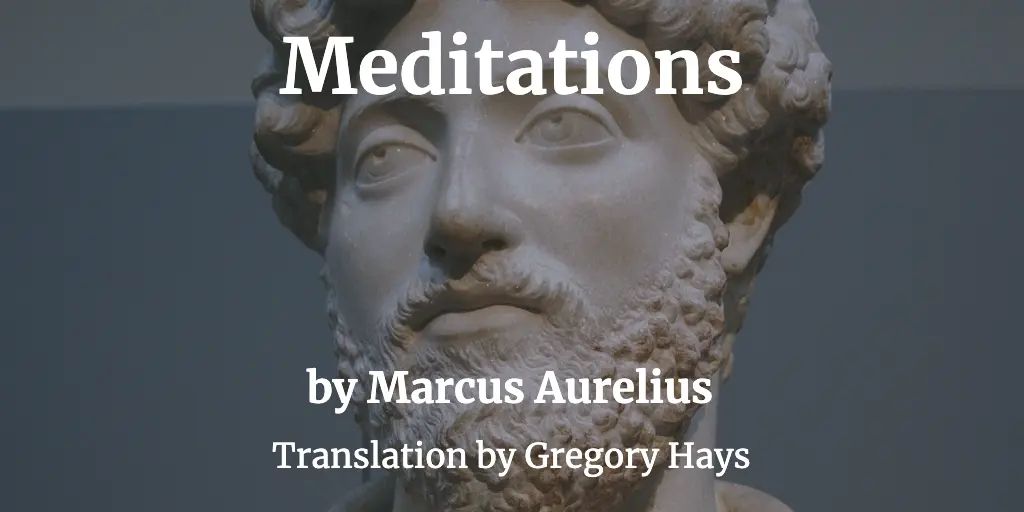
Get ready, language enthusiasts, for today we are embarking on an exciting culinary journey—not through delectable dishes, but through the rich, flavorful layers of one of English’s most indispensable words: “must.” Just like a perfectly curated recipe collection, the word “must” boasts an incredible array of uses, each adding a unique “flavor” to our communication. It is a true linguistic powerhouse, often appearing simple on the surface yet harboring depths of meaning that are absolutely essential to master.
Think of “must” as that foundational ingredient in your pantry—perhaps a versatile spice or a key leavening agent that binds everything together. Without it, many expressions simply would not rise to their full potential, lacking the precise nuance of obligation, certainty, or imperative. It truly is the “secret ingredient” that elevates straightforward statements into declarations of necessity or undeniable truth, rendering conversations more impactful and intentions clearer for everyone involved.
So, let us roll up our sleeves and delve into the first half of our exploration. We will uncover six core applications of “must” as a modal auxiliary verb, savoring each distinct usage as if it were a unique component of a grand linguistic feast. By the end of this journey, you will have a newfound appreciation for this unassuming yet profoundly powerful word, discovering why it truly belongs on your “must-understand” list. Get ready to sprinkle “must” into your conversations with confidence and clarity, empowering your communication as never before.

1. **Must as a Command or Imperative:** When we discuss “must” in its most direct and unequivocal form, we are frequently examining its usage to convey a command or a stringent request. This is not a suggestion; it is an instruction that necessitates compliance, much like a pivotal step in a recipe that simply cannot be omitted to achieve the desired outcome. The Merriam-Webster dictionary, our reliable reference, defines this initial sense as “be commanded or requested to.” It establishes a distinct boundary, allowing minimal room for negotiation and underscoring an indisputable requirement.
Consider the example presented directly within the context: “We must be quiet during the performance.” This is not merely a courteous suggestion to minimize noise; it conveys an absolute necessity. The “must” here bears the unmistakable weight of an imperative, a non – negotiable directive that indicates the critical significance of the action. It underscores a situation where failure to comply would lead to a failure or adverse consequence, rendering the meaning unequivocal and eliminating any ambiguity regarding the expected behavior.
This potent usage implies that “must” is often utilized in rules, regulations, or urgent safety warnings where strict adherence is of utmost importance. It conveys an indisputable obligation that is not open to debate or individual interpretation. When you hear “You must stop,” it is not an invitation for discussion; it is a conclusive order, making this facet of “must” an indispensable tool for clear, authoritative communication.
2. **Must as a Strong Recommendation or Urgency:** Beyond strict commands, “must” also elegantly encapsulates the essence of a compelling recommendation or an urgent necessity, something that “ought by all means to” be done. It is the linguistic equivalent of a chef enthusiastically stating, “You must try this incredible new ingredient!” It is not a command; rather, it is an exceedingly strong exhortation, stemming from conviction and often a desire to share something valuable or essential that truly should not be overlooked by anyone.
The context exemplifies this perfectly with the example: “You must read that book.” This does not pertain to legal obligation or a direct order; instead, it aims to convey the profound value or significance of the book. The speaker is not merely recommending it; they are earnestly urging the listener to engage with it, believing it to be an experience or a piece of knowledge that absolutely should not be missed. It infuses the suggestion with a sense of critical importance, rendering it a highly persuasive linguistic instrument.
This nuanced application of “must” permits a gentler, yet still potent, form of influence. It implies a strong moral obligation or a profound personal conviction regarding the action. While the consequences of non – compliance may not be as severe as those of breaking a rule, the implication is that the individual would genuinely miss out on something valuable or advantageous. It is about encouraging engagement with something truly worthwhile.

3. **Must as Physical or Inevitable Necessity:** Here, “must” assumes a more fundamental, almost existential role, expressing a compulsion stemming from physical necessity or an immediate, unavoidable need. It pertains to the indisputable truths of existence, the universal prerequisites from which we simply cannot deviate, reflecting a profoundly ingrained reality rather than a human – imposed regulation. This usage underscores actions that are not a matter of choice or will but rather intrinsic conditions of being or functioning.
The dictionary defines this as “be compelled by physical necessity to” or “be required by immediate or future need or purpose to.” Consider the timeless wisdom presented in the context: “One must eat to live.” This is not a moral edict or a command; it is a stark declaration of biological imperative, a fundamental truth that applies to all living organisms. There is no alternative to this basic prerequisite for survival.
Similarly, the phrase “We must hurry to catch the bus” reflects a compulsion driven by an external, time – sensitive deadline. The bus will depart irrespective of our wishes, making speed a non – negotiable prerequisite for achieving our objective. This “must” is pragmatic and rooted in the realities of the physical world, emphasizing that certain actions are indispensable for achieving desired results or simply for existing.
4. **Must as a Social, Legal, or Moral Obligation:** Entering the domain of human interaction and societal structures, “must” often signifies obligations arising from social considerations, established laws, or our own moral conscience. It serves as the adhesive that binds communities and legal frameworks together, delineating the duties and responsibilities that shape our collective behavior and ensure harmonious coexistence. This sense of “must” pertains to our innate understanding of what is proper, just, or required within a given context.
The context explicitly defines this usage as “be obliged to: be compelled by social considerations to” or “be required by law, custom, or moral conscience.” The classic example, “We must obey the rules,” perfectly encapsulates this concept. It is not about the physical impossibility of disobedience, but about the societal and moral imperative to adhere to established norms. It is the implicit understanding that certain actions are not optional if we are to operate effectively and responsibly within a structured environment.
This particular “must” highlights the foundations of civility and order, reflecting the expectations imposed upon individuals within a community. Whether it is a formal law like “Private insurance is a must” for healthcare (as an example from the context) or an unwritten social custom, this “must” governs our behavior in relation to others, ensuring respect and compliance with collective standards. It emphasizes that fulfilling these obligations is of utmost importance for the well – being of the group.
5. **Must as Logical Inference or Certainty:** Perhaps one of the most captivating applications of “must” is its capacity to convey a robust logical inference or a high degree of certainty. In this regard, “must” operates less as a command and more as a deduction grounded in available evidence or reasoning, akin to unraveling an enthralling mystery. It is the verbal counterpart of connecting the dots, reaching a conclusion that feels irrefutably true, even when direct proof is not immediately available, for the logic is so persuasive.
The given definitions explicitly articulate this as “be logically inferred or supposed to” and “indicates that the speaker is certain that the subject will have executed the predicate.” Consider the scenario from the context: “If it has rained all day, it must be very wet outside.” The “must” here does not command the outside to be wet; rather, it expresses the speaker’s absolute certainty, a logical deduction drawn from the premise of all – day rain. There is an irrefutable conclusion that simply ensues.
It is a potent means of expressing confidence in a conclusion, rendering it a cornerstone of deductive reasoning in everyday language. Another example, “The children must be asleep by now,” exemplifies this deduction, indicating the speaker’s strong belief based on common expectation or typical bedtime routines. This usage of “must” signals to the listener that the speaker has evaluated the facts and arrived at a conclusion they deem to be highly probable or even inevitable.

6. **Must as a Compulsion by Fate or Natural Law:** Finally, “must” can transcend mere human directives to express an inescapable compulsion dictated by fate, destiny, or the immutable laws of nature. This usage endows “must” with a profound sense of inevitability, emphasizing outcomes that are entirely beyond human control or intervention. It refers to the grander forces that govern the universe and our position within it, imparting a profound and sometimes philosophical weight to the word.
Merriam – Webster encapsulates this exquisitely: “be compelled by fate or by natural law to.” The poignant phrase, “What must be will be,” serves as a perfect illustration. It is an acknowledgment that certain events are predestined, unalterable, and will unfold as they are meant to, regardless of human desire or interference. This “must” implies a resignation to the natural order or a belief in predetermined outcomes.
This application of “must” underscores the concept of an unchangeable future or an inherent natural order, reminding us that some things are simply destined to happen, independent of our desires or actions. It bestows upon the word a certain gravitas, connecting it to the universal truths that underpin our world. It is the “must” that describes the flow of a river or the turning of the seasons, unyielding and eternally true.
Now that we have relished the modal auxiliary verb “must” in all its essential forms, our linguistic exploration continues! Just as a truly unforgettable meal consists of more than one course, “must” offers an even richer tapestry of meanings beyond its role in expressing obligation or certainty. We are about to unveil its fascinating existence as a noun, explore its subtle distinctions from other words, and even journey back in time to trace its etymological roots and observe its echoes across languages. Get ready to add even more layers of nuance to your understanding of this truly indispensable word!
Our journey into the versatile nature of “must” is far from over. We are delving deep into its lesser – known, yet equally crucial, roles, discovering how this single word fulfills multiple purposes, much like a star ingredient that can transform a dish in unexpected ways. From being an absolute necessity to a fresh delight, and even a hint of something aged, “must” truly demonstrates its multifaceted nature.
7. **Must as a Noun: The Indispensable Item** Beyond its potent role as a verb, “must” gleams brilliantly as a noun, representing something that is absolutely essential, an imperative need, or a fundamental duty. Envision it as that one ingredient without which your recipe simply would not function, a true cornerstone. The Merriam – Webster dictionary defines this sense as “an imperative need or duty” or “an indispensable item: essential.” It constitutes the ultimate endorsement, designating something as non – negotiable for success or well – being.
Consider the everyday wisdom: “Exercise is a must if you wish to stay healthy.” Here, “must” is not commanding you to exercise; rather, it is underscoring its indisputable significance as a prerequisite for good health. Similarly, “Boat rides on Lake Como are a must” implies an experience so vital that it simply cannot be missed by anyone visiting. It is the highlight, the non – optional element that elevates an experience from good to extraordinary, a quintessential part of any well – planned itinerary.
This usage also extends to practical and professional realms. For instance, “Private insurance is a must” in certain healthcare contexts, indicating a critical requirement rather than a mere suggestion. And in the world of technology, “Having flagship Google hardware on hand is a must” if Google plans to integrate new platforms, emphasizing a necessary tool for a specific objective. It encompasses anything from a critical piece of equipment to a vital habit, rendering it an everyday staple in our vocabulary.

8. **Must as a Noun: The Sweet Beginnings (Fruit Juice)** Prepare your palates for a distinct kind of “must”—the delightful, unfermented essence of fruit. In this delectable sense, “must” denotes “the expressed juice of fruit and especially grapes before and during fermentation.” Envision the freshest grape juice, vibrant and sweet, before it commences its transformation into wine. It represents the pure, unadulterated beginning, brimming with natural sugars and flavor, a true taste of the raw harvest.
This meaning harks back to ancient winemaking traditions, where the “must” was the foundational liquid, bearing the promise of future vintages. The context presents a vivid image from Henry Wadsworth Longfellow: “No fermenting must fills and o’erflows the deep vats.” This exquisitely captures the initial stage of the process, a natural sweetness awaiting transformation, highlighting a crucial stage in the production of many beloved beverages.
While this usage is less prevalent in everyday conversation today, it remains of great significance in viticulture and oenology. It refers to the raw, natural state of the fruit’s liquid, a vital component in the creation of fermented drinks. This historical and specialized meaning adds another dimension to the word’s remarkable versatility, reminding us that “must” has been an integral part of human endeavors for centuries, from fulfilling necessities to crafting delectable libations.

9. **Must as a Noun: A Hint of Age (Moldiness)** From sweet juice to something slightly less palatable, “must” also possesses an intriguing, albeit less savory, association with mold or mustiness. This particular noun form denotes “the property of being stale or musty” or “something that exhibits the property of being stale or musty.” It represents the subtle, damp odor of a place that has not been exposed to fresh air for a while, or the slightly stale taste of food that has passed its prime.
This usage links “must” to a distinct sensory experience—that faint, earthy scent often detected in old cellars, forgotten attics, or unventilated spaces. It serves as a reminder of decay and age, contrasting sharply with the freshness of fruit must. Although not encountered as frequently, this meaning highlights the word’s ability to describe various states and conditions, demonstrating its descriptive prowess across different sensory domains.
The concept of “mustiness” implies a quality that has developed over time, often due to a lack of air or an excess of moisture, conferring a distinctive, sometimes unpleasant, character. This sense of the word, though perhaps not as glamorous as its other meanings, further enhances our appreciation for its broad semantic scope. It proves that “must” is not merely about what is required or sweet, but also about the subtle transformations brought about by time and environment.

10. **Navigating the Nuances: Must vs. Will** After having explored the numerous facets of “must,” it is of great importance to understand how it stands apart from another frequently – employed modal verb: “will.” Both “must” and “will” convey a sense of inevitability, yet they do so with distinct nuances, much like two similar but ultimately different spices that produce unique results. Understanding this distinction is the key to precise and impactful communication, ensuring that your message is conveyed exactly as intended.
The core difference lies in their respective emphases. “Must” signals a strong necessity or obligation, an imperative that demands compliance, often implying consequences for non – compliance. For instance, “I must finish my homework before I go to bed” carries the weight of a firm requirement, indicating that there is no alternative. It communicates an undeniable pressure, whether internal or external, that drives the action.
In contrast, “will” expresses future certainty, a prediction, or a clear intention, without necessarily bearing the same weight of compulsion. “I will finish my homework tomorrow” indicates a planned future action, a commitment that the speaker intends to honor, but it lacks the immediate, non – negotiable pressure of “must.” While both are crucial for expressing requirements and plans, “must” is stronger in terms of obligation, whereas “will” is more centered on intention or prediction, rendering it generally more casual.

11. **Tracing the Roots: The Etymology of ‘Must’ (Verb and Noun 1)** Our linguistic exploration now guides us back in time to uncover the fascinating origins of “must.” Like tracing the lineage of a rare, exquisite vintage wine, understanding its etymology unveils the rich history behind its diverse uses. The verb and the initial noun sense of “must” share a common, ancient Germanic ancestry, linking us to the linguistic landscapes of centuries past and demonstrating the word’s remarkable resilience.
“Must,” as a verb, along with its noun sense denoting an indispensable item, originated from Middle English “moste.” This, in turn, was derived from Old English “mōste,” which functioned as the past indicative and subjunctive form of “mōtan.” This Old English verb meant “to be permitted to,” “to have to,” or “to be compelled to.” The lineage continues back to Proto – Germanic *mōtaną, with cognates found in languages such as Dutch (“moest”), German (“musste”), and Swedish (“måste”), all conveying similar senses of obligation or permission.
This profound historical root elucidates why “must” carries such a strong sense of requirement and necessity in English. Its core meaning has always centered around compulsion or permission, evolving over time to incorporate the various nuances we employ today. The word has indeed traversed through linguistic history, preserving its potent essence and adapting its form to meet the ever – evolving demands of communication, rendering it a timeless instrument in our verbal repertoire.

12. **Global Echoes and Other Meanings: A Rich Linguistic History** The narrative of “must” does not conclude with its primary meanings and ancient Germanic origins; it extends globally and even features a few fascinating linguistic relatives. Beyond the verb and the initial noun, the “fruit juice” sense of “must” (Noun 2) has a distinct Latin heritage, deriving from Middle English “must” and Old English “must,” both of which trace back to the Latin “mustum.” This Latin connection underscores a separate, yet equally ancient, trajectory for the word’s development, specifically linking it to viticulture.
Even the less – common “moldiness” sense of “must” (Noun 3), from Middle English (Scots) “moist,” an alteration of “musc” (musk), indicates a distinct lineage, suggesting an evolution associated with sensory descriptions. This separate etymological path highlights how different meanings can converge into a single word, enriching its semantic terrain. The word’s history is a complex tapestry of different origins, each contributing to its multifaceted nature.
Furthermore, “must” reverberates across numerous languages, reflecting its fundamental significance in expressing necessity and certainty. From the Finnish “täytyä” and the French “devoir” to the German “müssen” and the Spanish “deber,” the concept of “must” serves as a universal linguistic cornerstone. The “Translations” section in the context presents dozens of equivalent terms from various languages, such as Arabic (يَجِب), Chinese (必須), Russian (до́лжен), and Japanese (…なければならない), demonstrating that the imperative of “must” resonates globally, rendering it a truly international word with a rich, interconnected history of meanings.
And there you have it, language aficionados! Our culinary and linguistic exploration through the myriad “musts” of the English language reaches a gratifying conclusion. From its forceful commands to its sweet, unfermented origins, and its undeniable role as an essential item, “must” proves to be far more than a mere simple modal verb. It is a fundamental component in our communication, a word teeming with history, nuance, and global connections. So, go forth and employ your newly – acquired “must” knowledge with confidence, relishing every precise and potent application!




